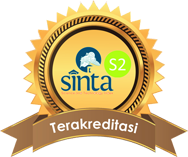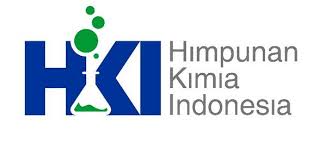Enhancing Students’ Conceptual Understanding and Learning Independence in Chemical Equilibrium using E-Module Based Guided Discovery Learning
DOI:
https://doi.org/10.15575/jtk.v8i2.27159Keywords:
conceptual understanding, e-module, guided discovery learning, learning independentAbstract
Chemical equilibrium is considered abstract so it requires visualization by analogy through electronic modules combined with interactive multimedia teaching materials. This study aims to examine the influence of a guided discovery learning-based e-module on chemical equilibrium on the development of conceptual understanding and self-directed learning among 11th grade science students enrolled in the control and experimental groups. The research framework employed in this study follows a research and development (R&D) model. The participants were selected using the cluster random sampling technique. The e-module, developed based on GDL principles, was administered to 72 science 11th grade students through a quasi-experimental design involving a posttest-only control group. The research employed conceptual understanding test of chemical equilibrium and a self-directed learning questionnaire as data collection instruments. The disparities in conceptual understanding and self-directed learning between the control and experimental groups were assessed using the MANOVA (Hotteling's trace) test. There is a significant difference in both the overall and individual abilities of conceptual understanding and learning independence between students who used electronic modules based on GDL and those who did not, as indicated by simultaneous significance levels of 0.001 and individual significance levels of 0.009 and 0.004, all of which are smaller than 0.05.
References
Abidin, Z. S. E. W. (2019). Interactive e-module model of transformation geometry based on case (creative, active, systematic, effective) as a practical and effective media to support learning autonomy and competence. International Journal of Development Research, 9(1), 25156-25160 https://doi.org/10.36557/2674-8169.2019v1n7p206-223
Al Mamun, M. A., M. A., Lawrie, G., & Wright, T. (2020). Instructional design of scaffolded online learning modules for self-directed and inquiry-based learning environments. Computers & Education, 144, 1-17. https://doi.org/10.1016/j.compedu.2019.103695
Andamon, J., & Tan, D. A. (2018). Conceptual understanding, attitude and performance in mathematics of grade 7 students. International Journal of Scientifict and Technology Research, 7(8), 96-105. Retrieved from https://www.researchgate.net/publication/327135996_Conceptual_Understanding_Attitude_And_Performance_In_Mathematics_Of_Grade_7_Students
Anderson, Lorin, W. (2010). Pembelajaran pengajaran dan assessment. Yogyakarta: Pustaka Belajar.
Asmiyunda, A., Guspatni, G., & Azra, F. (2018). Pengembangan e-modul kesetimbangan kimia berbasis pendekatan saintifik untuk kelas xi sma/ma. Jurnal Eksakta Pendidikan, 2(2), 155-161. https://doi.org/10.24036/jep/vol2-iss2/202
Cho, M. H., Kim, Y., & Choi, D. (2017). The effect of self-regulated learning on college students’ perceptions of community if inquiry and affective outcomes in online learning. The Internet and Higher Education, 34, 10-17. https://doi.org/10.1016/j.iheduc.2017.04.001
Cukurova, M., Bennett, J., & Abrahams, I. (2018). Student’s knowledge acquisition and ability to apply knowledge into different science contexts in two different independent learning settings. ReseaRch in science & Technological education, 36(1), 17-34. https://doi.org/10.1080/02635143.2017.1336709
Handayani, D., Elvinawati, E., Isnaeni, I., & Alperi, M. (2021). Development of Guided Discovery Based Electronic Module For Chemical Lessons In Redox Reaction Materials. Int. J. Interact. Mob. Technol., 15(7), 94-106. https://doi.org/10.3991/ijim.v15i07.21559
Herawati, N. S., & Muhtadi, A. (2018) Pengembangan modul elektronik (e-modul) interaktif pada mata pelajaran kimia kelas XI SMA. Jurnal Inovasi Teknologi Pendidikan, 5(2), 180-191. https://doi.org/10.21831/jitp.v5i2.15424
Hockings, C., Thomas, L., Ottaway, J., & Jones, R. (2018). Independent learning what we do when you’re not there. Teaching in Higher Education, 23(3), 145-161. https://doi.org/10.1080/13562517.2017.1332031
Ikram, U. Z., Essink-Bot, M. L., & Suurmond, J. (2018). How we developed an effective e-learning module for medical students on using professional interpreters. Medical Teacher, 37(5), 422-427. https://doi.org/10.3109/0142159X.2014.939579
Iswara, P. W. (2017). Pengaruh Rasio Likuiditas, Rasio Profitabilitas, Rasio Leverage, Ukuran Perusahaan, dan Asset Growth terhadap Kebijakan Dividen (Studi Kasus pada Perusahaan Industri Manufaktur Sub Sektor Makanan dan Minuman yang terdaftar di Bursa Efek Indonesia Periode 2012-2015). Jurnal Bisnis Teknologi, 4(1), 33-47. Retrieved from https://repository.nscpolteksby.ac.id/39/
Kilpatrick, S., Jones, T., & Barrett, M. (2003). Defining learning communities. Launceston: Centre for Research and Learning in Regional Australia.
Kiryak, Z., & Calik, M. (2018). Improving grade 7 students, conceptual understanding of water pollution via common knowledge construction model. International Journal of Science and Mathematics Education, 16 (6), 1025-1046. https://doi.org/10.1007/s10763-017-9820-8
Kumalasari, D. (2015). Dampak model discovery learning terhadap keterampilan proses sains dan hasil belajar ipa fisika siswa di mts negeri 1 jember. Jurnal Pendidikan Fisika (4)1, 80-86. http://dx.doi.org/10.6007/IJARBSS/v8-i9/4593
Lu’luilmaknun, U., & Wutsqa, D. U. (2018). Efektivitas media e-learning dengan metode guided discovery ditinjau dari kemandirian belajar matematika siswa. Jurnal Program Studi Pendidikan Matematika, 7(3), 413-424. http://dx.doi.org/10.24127/ajpm.v7i3.1572
Luthfiani, A., & Yerimadesi, Y. (2022). Effectiveness of e-module based on guided discovery learning on learning outcomes of high school students. Jurnal Pijar Mipa, 17(6), 770-774. https://doi.org/10.29303/jpm.v17i6.4252
Martin, A. J., & Evans, P. (2018). Load reduction instruction: Exploring a framework that assesses explicit instruction through to independent learning. Teaxhing and Teacher Education 73(1), 203-214. https://doi.org/10.1016/j.tate.2018.03.018
Metz, C. J., Ballard, E., & Metz, M. J. (2020). The stress of success: an online module to help first-year dental students cope with the impostor phenomenon. Journal of Dental Education, 84(9), 1016-1024. https://doi.org/10.1002/jdd.12181
Ramadhan, S., & Linda, R. (2020). Pengembangan E-Module Interaktif Chemistry Magazine Berbasis Kvisoft Flipbook Maker Pada Materi Laju Reaksi. Jurnal Zarah, 8(1), 7-13. https://doi.org/10.31629/zarah.v8i1.1352
Rakhmawan, A., Firman, H., Redjeki, S., & Mulyani, S. (2018). Contribution of logical thinking ability to students’ achievement in three level of representations in chemical dynamic materials. Jurnal Penelitian dan Pembelajaran IPA, 4(2), 116-126. http://dx.doi.org/10.30870/jppi.v4i2.4102
Razzaq, A., Samiha, Y. T., & Anshari, M. (2018). Smartphone habits and behaviors in supporting student’s self-efficacy. International Journal of Emerging Technologies in Learning, 13(2). https://doi.org/10.3991/ijet.v13i02.7685
Rifa’i, M. (2019). Analisis respon dan kemandirian belajar mahasiswa stkip qomaruddin Gresik terhadap penggunaan modul elektronik kalkulus berbasis geogebra. SNHRP, 55-62. Retrieved from https://snhrp.unipasby.ac.id/prosiding/index.php/snhrp/article/view/37
Ristiyani, E., & Bahriah, E. S. (2016). Analisis kesulitan belajar kimia siswa di sman x kota tangerang selatan. Jurnal Penelitian dan Pembelajaran IPA, 2(1), 18-29. http://dx.doi.org/10.30870/jppi.v2i1.431
Schwedler, S., & Kaldewey, M. (2020). Linking the submicroscopic and symbolic level in physical chemistry: how voluntary simulation-based learning activities foster first-year university students’conceptual understanding. Chemistry Education Research and Practice, 21(4), 1132-1147. https://doi.org/10.1039/C9RP00211A
Shah, U. V., Chen, W., Inguva, P., Chadha, D., & Brechtelsbauer, C. (2020). The discovery laboratory part II: A framework for in incubating independent learning. Education for Chemical Engineers, 31, 29-37. https://doi.org/10.1016/j.ece.2020.03.003
Shahrul, A., & Muladi, T. W. (2018). Pengembangan sumber belajar basis data bermuatan conceptual learning untuk meningkatkan pemahaman konsep dan menumbuhkan kemandirian belajar. Doctoral dissertation. Universitas Negeri Malang. Retrieved from https://pdfs.semanticscholar.org/0a6b/ae07c854aee442ff503f1efcdcb987a9c44b.pdf
Singh, V., & Thurman, A. (2019). How many ways can we define online learning? A systematic literature review of definitions of online learning (1998-2018). American Journal of Distance Education, 33(4), 289-306. https://doi.org/10.1080/08923647.2019.1663082
Siregar, A. D., & Harahap, L. K. (2020). Pengembangan e-modul berbasis project-based learning terintegrasi media komputasi hyperchem pada materi bentuk molekul. Jurnal Penelitian Pendidikan Sains. 10(1), 1925-1931. http://dx.doi.org/10.26740/jpps.v10n1.p1925-1931
Suarsana, I. M., & Mahayukti, G. A. (2013). Pengembangan e-modul berorientasi pemecahan masalah untuk meningkatkan keterampilan berpikir kritis mahasiswa. JPI (Jurnal Pendidikan Indonesia), 2 (2). https://doi.org/10.23887/jpi-undiksha.v2i2.2171
Sugianto, I., Suryandari, S., & Age, L. D. (2020). Efektivitas model pembelajaran inkuiri terhadap kemandirian belajar siswa di rumah. Jurnal Inovasi Penelitian, 1(3), 159-170. https://doi.org/10.47492/jip.v1i3.63
Utami, N., Sukestiyarno, Y. L., & Hidayah, I. (2022). Student Problem-Solving Ability in Views of Self-Directed Learning on Problem Based Learning Assisted by Module. Unnes Journal of Mathematics Education Research, 11(2). Retrieved from https://journal.unnes.ac.id/sju/index.php/ujmer/article/view/64999
Wahyuni, Z. A., Pradipta, A., Khaira, U., & Mareza, A. (2022, July). Validity and Practicality of Guided Discovery Learning-Based Chemistry E-Module for Class XII High School. In Journal of Physics: Conference Series (Vol. 2309, No. 1, p. 012092). IOP Publishing. Retrieved from https://doi.org/10.1088/1742-6596/2309/1/012092
Widoyoko, E. P. (2012). Teknik penyusunan instrumen penelitian. Yogyakarta: Pustaka Pelajar.
Wulandari, I. G. A., Sa’dijah, C., As’ari, A. R., & Rahardjo, S. (2018). Modified guided discovery model: a conceptual framework for designing learning model using guided discovery to promote student’s analytical concept thinking skills. In Journal of Physics: Conference Series 1028 (pp. 001-009). https://doi.org/10.1088/1742-6596/1028/1/012153
Yaman, F., Alipasa, A. Y. A. S., & Calik, M. (2019). Facilitating grade 11 students’ conceptual uncerstanding of fundamental acid-base models. Turkish Journal of Education, 8(1), 16-32. https://doi.org/10.19128/turje.449100
Yerimadesi, Y., Warlinda, Y. A., Rosanna, D. L., Sakinah, M., Putri, E. J., Guspatni, G., & Andromeda, A. (2023). Guided Discovery Learning-Based Chemistry e-Module and ITS Effect on Students’ Higher-Order Thinking Skills. Jurnal Pendidikan IPA Indonesia, 12(1), 168-177. Retrieved from http://repository.unp.ac.id/43437/
Downloads
Published
How to Cite
Issue
Section
Citation Check
License
Authors who publish with this journal agree to the following terms:
- Authors retain copyright and grant the journal right of first publication with the work simultaneously licensed under a Creative Commons Attribution-ShareAlike that allows others to share the work with an acknowledgement of the work's authorship and initial publication in this journal.
- Authors are able to enter into separate, additional contractual arrangements for the non-exclusive distribution of the journal's published version of the work (e.g., post it to an institutional repository or publish it in a book), with an acknowledgement of its initial publication in this journal.
- Authors are permitted and encouraged to post their work online (e.g., in institutional repositories or on their website) prior to and during the submission process, as it can lead to productive exchanges, as well as earlier and greater citation of published work (See The Effect of Open Access).









